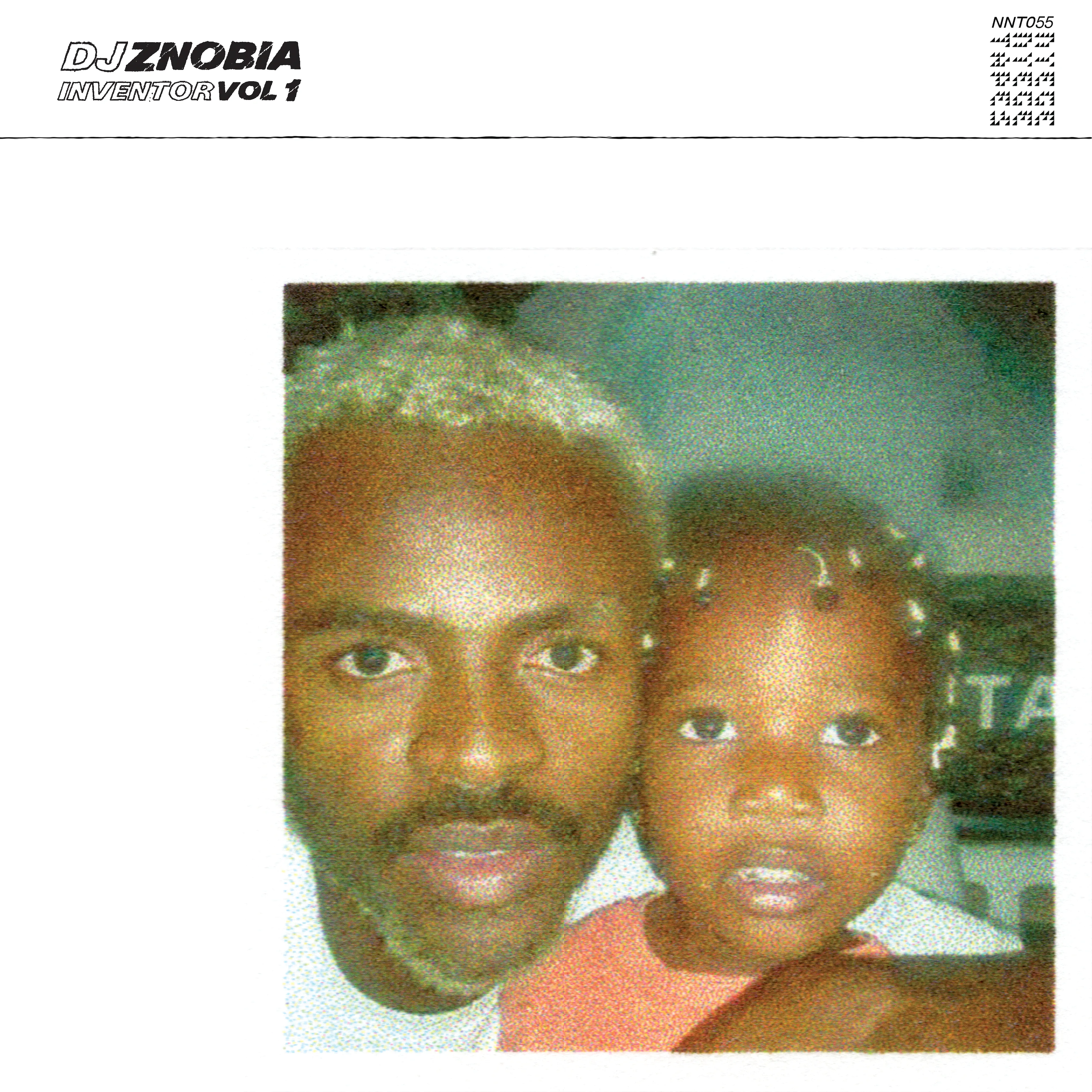- LP
- Recommended =
- New Release
DJ Znobia
Inventor Vol 1
Nyege Nyege Tapes - Cat No: NNT055lp
- updated:2023-10-05
NYEGE NYEGE TAPESからレーベルは「過去30年間でアフリカで最も影響力のあるミュージシャンの一人」と紹介するアンゴラのKUDOROの変革者DJ Znobiaのレトロスペクティブ第1弾。全容が紐解かれます。過去30年間の西洋の音楽と比べてどれほどの魅力が詰まっているか。触れてみてください。是非。
Track List
A massive honor to be releasing the first in a four volume retrospective of one of Africa’s most influential musicians of the last 30 years - kuduro and tarraxinha pioneer and originator DJ Znobia. A genius of street music and the pivotal visionary of Angola’s digital musical modernism, Znobia is the inventor.
Nyege Nyege Tapes went through over 700 tracks in Znobia’s archive (with double that number reputed to have been lost) to prepare a 4 Volume retrospective of his musical output from the late 90s to mid 2000s. Hailing from the musseke - or shantytown - of Barrio Do Rangel in the Angolan capital of Luanda, DJ Znobia was born Sebastião Lopes in 1979.
In the late 1990s, DJ Znobia embarked on a journey to create a new genre that would capture the energy and spirit of the South West African country, the second biggest Portuguese speaking country in the world after Brazil.
Znobia initially found renown as a dancer particularly fond of Michael Jackson, before teaching himself how to produce with Fruity Loops. Inspired by the fusion of traditional Angolan rhythms with electronic beats, he began experimenting with different sounds and styles. Through his tireless efforts, he eventually developed a genre that would revolutionise the Angolan music scene: kuduro.
Kuduro, which means "hard ass" in Portuguese, combines elements of traditional Angolan music such as semba, kilapanga, and kazukuta with modern electronic beats, resulting in a high-energy and infectious sound. DJ Znobia's innovative use of synthesisers, drum machines, and sampled vocals gave kuduro its distinctive character, and he quickly gained recognition as the genre's pioneer and leading producer. The fact that much of his output happened while Angola was in the grip of a terrible civil war, which only ended in 2002, makes his story even more remarkable.
With his groundbreaking productions, DJ Znobia paved the way for the widespread popularity of kuduro both in Angola and internationally in America and Europe. His tracks, such as “Batida 13 Horas'' became anthems of the genre, and his collaborations with local artists helped to propel kuduro into the mainstream. Kuduro has been hugely influential in Afro-diasporan communities in Portugal , and especially with the Príncipe Discos DJs and producers such as Dj Marfox, Dj Nervoso and Niggafox. In 2008, kuduro first arrived on the international scene, when British-Sri Lankan rap superstar M.I.A. collaborated with Znobia and Buraka Son Sistema on the single Sound of Kuduro which appeared on M.I.A.’s 2007 album Kala.
DJ Znobia's influence as a producer, DJ, MC and public figure has had a great imprint in Angolan culture for the better part of the last three decades. He is also considered one of the pioneers of the hugely popular tarraxinha genre of music and dance; the sexy, percussive cousin of kizomba; the name means “little screw/ screwdriver”.
Nyege Nyege Tapes went through over 700 tracks in Znobia’s archive (with double that number reputed to have been lost) to prepare a 4 Volume retrospective of his musical output from the late 90s to mid 2000s. Hailing from the musseke - or shantytown - of Barrio Do Rangel in the Angolan capital of Luanda, DJ Znobia was born Sebastião Lopes in 1979.
In the late 1990s, DJ Znobia embarked on a journey to create a new genre that would capture the energy and spirit of the South West African country, the second biggest Portuguese speaking country in the world after Brazil.
Znobia initially found renown as a dancer particularly fond of Michael Jackson, before teaching himself how to produce with Fruity Loops. Inspired by the fusion of traditional Angolan rhythms with electronic beats, he began experimenting with different sounds and styles. Through his tireless efforts, he eventually developed a genre that would revolutionise the Angolan music scene: kuduro.
Kuduro, which means "hard ass" in Portuguese, combines elements of traditional Angolan music such as semba, kilapanga, and kazukuta with modern electronic beats, resulting in a high-energy and infectious sound. DJ Znobia's innovative use of synthesisers, drum machines, and sampled vocals gave kuduro its distinctive character, and he quickly gained recognition as the genre's pioneer and leading producer. The fact that much of his output happened while Angola was in the grip of a terrible civil war, which only ended in 2002, makes his story even more remarkable.
With his groundbreaking productions, DJ Znobia paved the way for the widespread popularity of kuduro both in Angola and internationally in America and Europe. His tracks, such as “Batida 13 Horas'' became anthems of the genre, and his collaborations with local artists helped to propel kuduro into the mainstream. Kuduro has been hugely influential in Afro-diasporan communities in Portugal , and especially with the Príncipe Discos DJs and producers such as Dj Marfox, Dj Nervoso and Niggafox. In 2008, kuduro first arrived on the international scene, when British-Sri Lankan rap superstar M.I.A. collaborated with Znobia and Buraka Son Sistema on the single Sound of Kuduro which appeared on M.I.A.’s 2007 album Kala.
DJ Znobia's influence as a producer, DJ, MC and public figure has had a great imprint in Angolan culture for the better part of the last three decades. He is also considered one of the pioneers of the hugely popular tarraxinha genre of music and dance; the sexy, percussive cousin of kizomba; the name means “little screw/ screwdriver”.




90年代後半から2000年代半ばまでの彼の音楽活動、700以上のトラック(失われたトラックはその2倍とも言われている)の彼の音源のアーカイヴから、NYEGE NYEGE TAPESが送る4部柵に渡るリリースの第1弾。ポルトガルの移民コミュニティ経由でDJ Marfox、DJ Nervoso、Niggafoxといったアーチストに影響を与え、スリランカ出身のディアスポラで世界的に成功したM.I.A.にもBuraka Son Sistemaと共にフックされています。トラディッショナルなアンゴラの民族音楽にモダン・エレクトロニック・ビート、ラップ、ハイエナジーなエレクトロへと昇華。ミニマルも、アフカン・ビート、エディット感覚なども垣間見れる。天才の音楽。 (サイトウ)